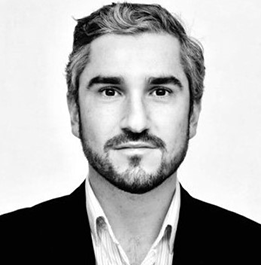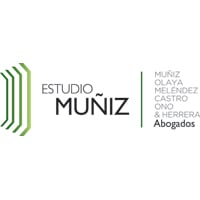

Legal corporate manager | Grupo Intercorp



Jose Enrique Frías Amat y León
Legal corporate manager | Grupo Intercorp
Focus on: Jose Enrique Frías Amat y León
Jose Enrique Frías Amat y León is the legal corporate manager and associate general counsel for Intercorp Group and has been working for this organisation since 2012. He has previously worked as an international associate at Simpson Thacher & Bartlett in NYC (2015 – 2016) and as an associate at Peruvian law firm Miranda & Amado (2006 – 2012). Jose received a degree in law from the Pontificia Universidad Católica del Perú in 2007, and an LLM from Columbia University in the city of New York in 2015, where he was awarded as Harlan Fiske Stone scholar. He has been a law professor at Peruvian university UPC. He has been providing legal advice for over 15 years to multinational corporations, investment funds, international institutions, trusts, banks and public-private partnerships, in corporate planning and cross-border transactions with a primary focus in the areas of M&A, capital markets, data andprivacy and banking andfinance. Jose has been working for Intercorp since 2012 and he leads the negotiation and execution of most of Intercorp’s transactions, participates in the structuring of Intercorp’s new ventures and leads Intercorp’s legal data committee.
Looking forward, what technological advancements do you think will impact the role of in-house counsel in the near future?
I am personally very interested in technology in general, and in particular, since I am a lawyer in the legal technology scene. In 2017, I attended the legal week, which is a technology event that is organised in New York in February. Before the pandemic, we were among the first ones to switch from dial-in to Zoom. It may seem minor, but it was transformational for us in terms of communication and cost savings during our work travels.
Since then, we have embraced technology and made significant advancements. For example, we moved all our documents to the cloud before the pandemic, allowing us to continue working seamlessly during lockdowns. We also explored opportunities outside Peru, seeking inspiration and advice from European counsel. Additionally, we implemented electronic signatures for internal approvals whenever legally possible. I am proud to say that we were ahead of the curve and able to adapt quickly to the services that boomed during the pandemic.
Now, we are entering the next stage, incorporating AI into our internal processes. We are using AI tools to improve efficiency and streamline tasks. For instance, I experimented with using AI-generated content to create invitations for our legal roundtable event. We have also utilised AI-powered document review in virtual data rooms to gain initial insights. We are open to exploring more technological advancements that can optimise our work, allowing us to focus on our core expertise.
From my perspective, this shift will require in-house counsel to adapt and enhance their skills. In the past, lawyers needed to speak English and be familiar with the culture surrounding American or UK counsel due to globalisation and transactions closing under their laws. Similarly, in the digital world, lawyers will need to be proficient in the language of technology and software developers. We need to understand how these digital products work, speak the developers’ language, and bridge the gap between legal and technical aspects. It is not a future development; it is already happening now. Lawyers can no longer claim ignorance about technology; they must embrace it and stay knowledgeable about the tools and processes involved.
In summary, I believe that technology will continue to shape the role of in-house counsel, enabling us to focus on our core expertise while leveraging advancements to enhance efficiency and communication.